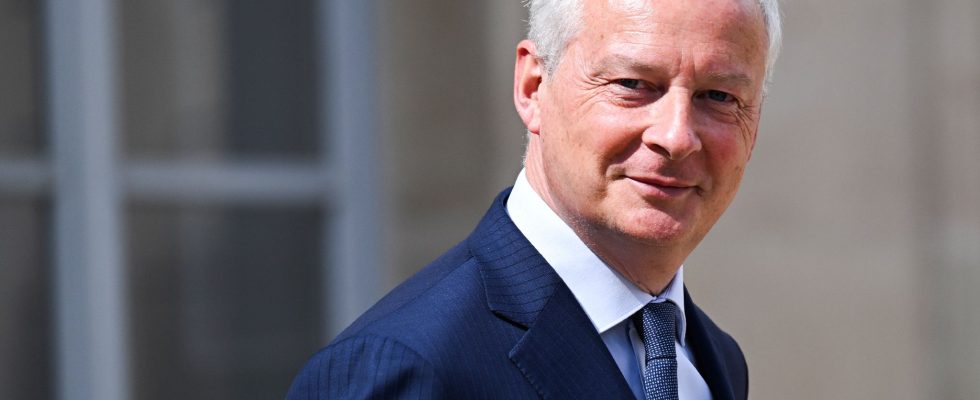Nothing changes. As with every return to school since the dawn of time, the government is looking for ways to save money, wants to eliminate unnecessary tax loopholes, wants to tackle unproductive spending. Each year, it is the same discourse, the same suffering from the ministers ordered to cut their budget, the same protests from those who benefited from this expenditure or this tax aid and, in the end, the same result: France remains world champion of public spending and its deficit is marginally reduced, before, in general, increasing significantly again.
Ultra short term
This 2023 return to school is a model of its kind, with a suffering/efficiency ratio at its maximum. The President of the Republic, the Prime Minister and the Minister of the Economy are jointly displaying their desire not to increase household taxes. Bruno Le Maire keeps repeating that the time for public debt reduction has come. We will therefore, in small steps, raise the taxes that hit those whom the media consensus considers to be the bad guys: energy companies, motorway companies, airlines… Postpone the promised tax cuts on the middle classes. Spread out those that were planned, the CVAE for companies in particular. And planing expenses – housing aid – when we were forbidden to do so.
This ultra-short-term strategy will allow the 2024 budget to show a slightly declining budget deficit (less than 5% of GDP) and an almost stabilized public debt (at less than 115% of GDP), corroborating the seriousness of the government and the financial credibility of our country. By doing this, we will have created discontent but without being lastingly useful to the country because we will, once again, have refused to look the public sphere in the face. For fifty years, we have acted as if our budgetary slippages were the consequence of a simple financial laxity that the return to sound management will eventually correct. This is a deep mistake. The analysis of public finances in France cannot be separated from the high level of compulsory levies, the decrepitude of schools and hospitals, the malaise of civil servants and public impotence.
The miracle never comes
We must abandon accounting in silos to analyze public action and its cost at the same time. Still too few national politicians – local elected officials know the problem better because they live it – confess the truth: our public sphere piles up standards, remunerates too many people and too badly, and does not know how to evaluate itself. The example of the health system is striking: with each dysfunction (emergency, paediatrics, etc.), hop!, an ad hoc plan and an additional budget, then we move on to something else. Rather than liberating and empowering, we spend, overregulate and wait for a miracle that never comes. We do communication, announcing hundreds of millions of euros more, but we don’t settle anything. Almost all of our public sphere operates on this model. Apart from Gérald Darmanin’s plan when he was Minister of Public Accounts to recruit more contract workers, nothing has been done for six years to deal with this subject.
If we take a step back, the last major reform of our public organization is that desired by Nicolas Sarkozy in 2010 aimed at bringing the departments and regions together by creating the territorial councilor, who would represent the two entities. The idea was clever, and no doubt effective. It woke up all forms of conservatism, as the former president recalls in The time of battles, which he has just published with Fayard. This reform was finally suppressed by François Hollande. A real mess.
Spend first, save later
What our country needs today is a huge plan to restructure our public services with the satisfaction of taxpayer users in mind. As in a business, it will cost money. Eh yes ! To reduce our deficit tomorrow, we must increase it immediately. But smart. Rather than a 4% budget deficit, we would need a 5% which is a 4 + 1. The 4% which corresponds to the current functioning of the public sector, the 1% to be invested in voluntary departures, new technologies , the reorganization to give more leeway to departments and agents. It is this 4 + 1 that will allow us to go down to 3, then to 2, etc. You follow me ?
* Nicolas Bouzou is an economist and essayist
